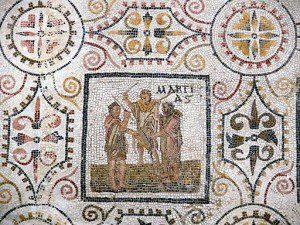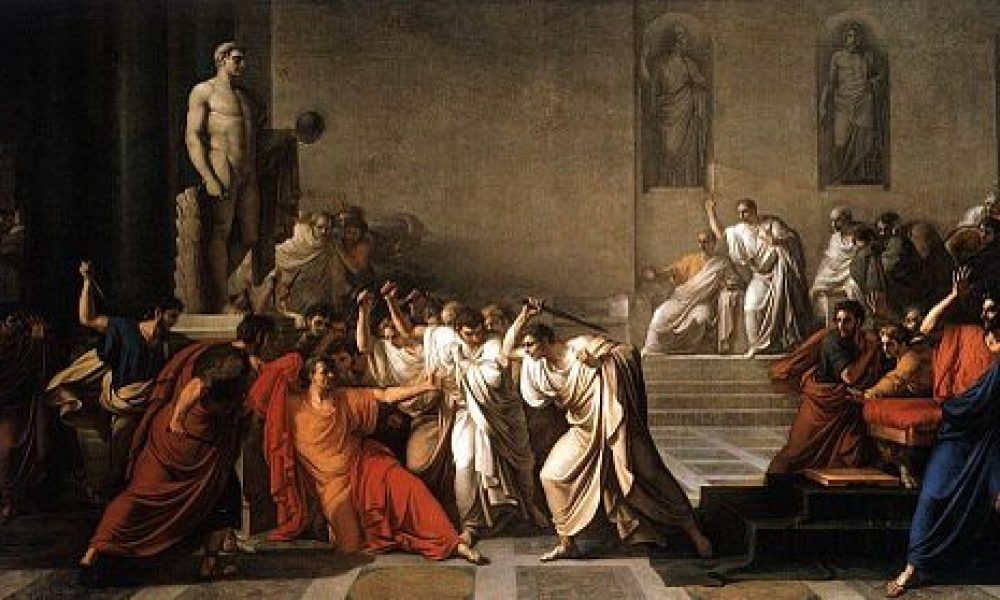March 15 sounds like a normal date to many, and to others, the “Ides of March” may come to mind. People who are familiar with ancient history or Shakespeare would mainly recognize the Ides of March as the fateful day when Julius Caesar was assassinated in 44 BC. Despite being warned by a seer, the Roman general/statesman was stabbed to death at a meeting by a number of conspiring senators.
Seer: Beware the ides of March.
― William Shakespeare, Julius Caesar
However prior to this event, the “Ides of March” was meaningful for other reasons. In a simple way, it meant the middle of March. Its latin root (idus) means divide. And it was used in the Roman calendar to divide the months at the rise of the full moon, which happened around the middle of the month. The Ides of each month was sacred to the supreme Roman deity Jupiter. That day could be the 13th or the 15th, depending on the month (how many days it has). For the month of March, it’s the 15th, hence the Ides of March.
In ancient Rome, this day in March was very important and celebrated. The Feast of Anna Perenna (the circle of the year) and the Mamuralia marked the coming of a new year, and later, the festivities grew to be a week-long. Why March and not January? Well in the oldest Roman calendar, March was actually the first month of the year, so that would mean that the 15th of March marked the 1st full moon of the year.

In our days, the 1st month of the year is January. That’s because the old Roman calendar being lunar and not quite in sync, was later modified and changed to the Julian calendar which again, was slightly modified to the current “Western” Gregorian calendar widely used today.
Which brings me to think… how many more calendars were there in the history of mankind? Off the top of my head, I could only think of the Babylonian and the Mayan one, but I know there are a lot more.
And then I start thinking about the different New Years currently celebrated, like the Lunar New Year, the Persian Nowruz etc. They stand just as strong, but follow/celebrate a different cycle.
How were humans able to create calendars from scratch? It must have been such an arduous task! If many have become obsolete, will this current one eventually be ? Say… if we discover something else that doesn’t match up ? I mean, it was only formed in 1582.
This makes me want to edumacate myself some more!
So much to explore and learn from our past don’t you think?











